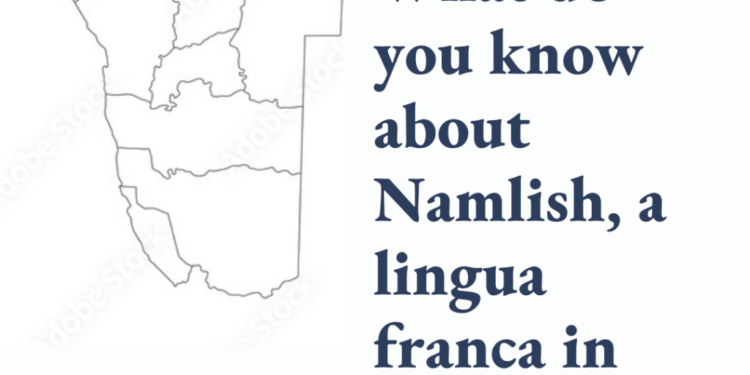“The language of the coloniser has become part of our social reality and we should ‘Afrikanize’ it. As Africans, we should have the liberty to put in African phrases and sentence constructions in our usage of English.” — Chinua Achebe. We do not want to take a stand but it seems Namibians might have taken inspiration from the great Chinua Achebe.
Namibia is a country in Southern Africa with a population of about 2.6 million and 11 tribes of which the largest tribal group is the Owambo people. There are 13 national languages with English as an official language. Other recognised languages are Afrikaans and German.
At Bolingo, we are not just interested in Africa’s official languages and recognised local languages but also in local slangs and vernaculars because we believe they are the heartbeat of any localized content. It’s why we wrote about Camfranglais in Cameroon and now we want to throw light on Namlish in Namibia.
Namlish is an Africanised Namibian version of English that is a popular and somewhat acceptable language in Namibia even though some Namibians who regard themselves as “educated” do at times laugh at the Namlish language. Namlish, according to several reports, is a form of language spoken in Namibia and was first recorded in 1991. The word “Namlish” is a combination of the words Nam (from Namibia) and lish (English).
“Namlish is used daily to communicate in Namibia and each region has a slightly different version and pronunciation of it, because of the prominent language in the area. Somehow the locals still understand each other, despite the strange words that foreigners just cannot place.” — Jescey Visagie—Namibian language writer.
The presence of other languages like Afrikaans has also impacted on Namlish and that’s why when Dave Carroll, the Canadian award-winning singer, visited Namibia in 2015, he couldn’t grasp the idea that people were consistently telling him to “buy a donkey” until he asked what the strange expression meant.
It turned out people weren’t asking him to buy donkeys but were thanking him in Afrikaans, “baie dankie.” Even English Language teachers and lecturers in Namibia aren’t spared from coming across Namlish in compositions and assignments. This has led to many school children failing the English Language examinations which strictly don’t accept the Namilish language.
Namlish is not like Camfranglais which looks like a typical pidgin (fusion of different languages). In Namlish, normal English words which are used in slightly “broken English” and mixed with some slang type of local words from local languages such as Afrikaans. For example, one can say: “My Ma was at town neh and got sick uka este-ee” which means in correct English grammar the individual is trying to say: ‘My mother was in town and suddenly got very sick!’
Another common example is when one is supposed to say: “Excuse me!” in Namlish one can just say; “Sorry!”. A young boy can also just simply be called “a kaboy” in Namlish. Also, an expression like, “Hang the calendar or else I’ll hang myself!” doesn’t mean the person wants to kill himself/herself but rather wants to say, “Hang up the calendar or I will do it myself!” In fact, to connect with people is to accept and appreciate their cultural uniqueness.






